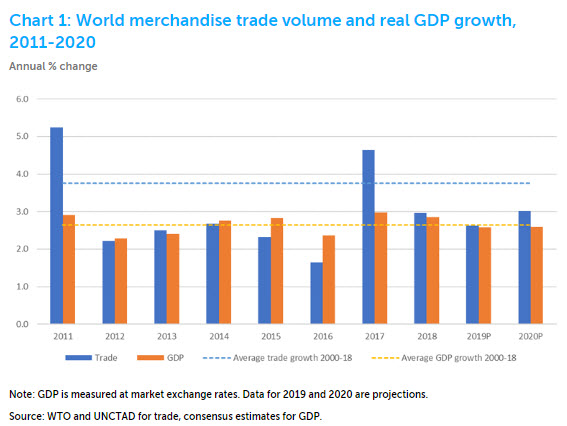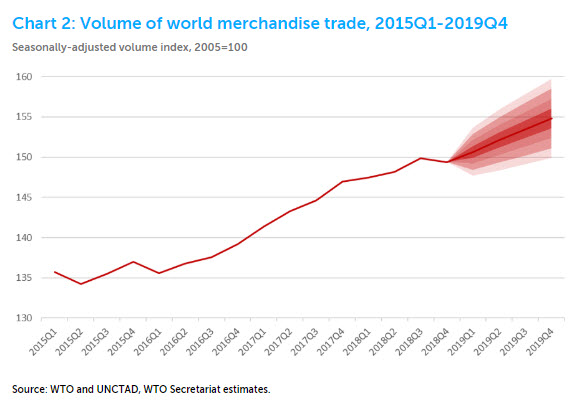WTO and Shipping Industry Concerned About Trade War
A delegation from the International Chamber of Shipping (ICS), the Asian Shipowners’ Association (ASA) and the European Community Shipowners’ Associations (ECSA) has, at the World Trade Organization (WTO) in Geneva, expressed concern over recent increases in protectionist measures including the decision by the U.S. to increase tariffs on Chinese goods.
In two position papers to the WTO, the organizations say they are “fully committed to the preservation and promotion of free trade policies and principles around the world.” The papers highlight that there has been a seven fold increase in import-restrictive trade measures since 2017. 137 new trade-restrictive measures were put in place between 2017 and 2018. This represents an additional $588.3 billion of additional costs to global trade.
Addressing the WTO Simon Bennett, ICS Deputy Secretary General said: “It is no coincidence that the massive growth in the global economy and thus the demand for maritime services that has been seen over the past 25 years has followed the WTO’s establishment in 1995. Global maritime trade now exceeds 10 billion tons of cargo a year, but the efficiency of the shipping sector is dependent on a rules based trading system. This requires the negotiation and adherence to multilateral trade agreements under the auspices of the WTO.
“Recently this success story has been the subject of unwarranted criticism and threat by certain governments, including the United States, undermining the WTO’s role as the regulator of international trade. There are no winners when you increase unilateral tariffs, which is why the best place to address disputes is at the WTO.”
Shipowners are encouraging WTO Member States to ensure that bilateral agreements and regional agreements - including those which relate to shipping and maritime transport services - do not conflict with their current national schedules of commitments, as agreed within the framework of the WTO.
The WTO predicts that world trade will continue to face strong headwinds in 2019 and 2020 after growing more slowly than expected in 2018 due to rising trade tensions and increased economic uncertainty. WTO economists expect merchandise trade volume growth to fall to 2.6 percent in 2019, down from 3.0 percent in 2018. Trade growth could then rebound to 3.0 percent in 2020. However, this is dependent on an easing of trade tensions.
On releasing the figures last month WTO Director-General Roberto Azevêdo said: “Trade cannot play its full role in driving growth when we see such high levels of uncertainty. It is increasingly urgent that we resolve tensions and focus on charting a positive path forward for global trade which responds to the real challenges in today's economy – such as the technological revolution and the imperative of creating jobs and boosting development.”

that matters most
Get the latest maritime news delivered to your inbox daily.


